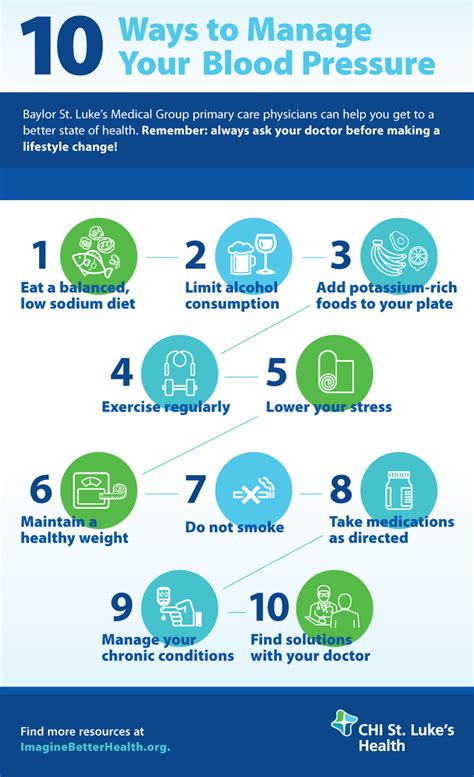
High blood pressure, often symptomless, can be effectively managed and even reversed through lifestyle modifications and, in some cases, medication, as demonstrated by one individual’s journey from dangerously high readings to a healthy range by implementing specific dietary and exercise changes.
For years, one woman’s blood pressure readings consistently hovered around 160/100 mmHg, placing her at significant risk for heart disease, stroke, and other severe health complications. Initially, medication provided a temporary solution, but the ultimate goal was to lower her blood pressure naturally and sustainably. After a concerted effort involving dietary changes, regular exercise, stress management, and consistent monitoring, she successfully lowered her blood pressure to a healthy 120/80 mmHg. This dramatic improvement underscores the potential for individuals to take control of their cardiovascular health through proactive lifestyle adjustments.
“High blood pressure is often a silent killer, showing no symptoms until it causes a major health event,” explains Dr. Nieca Goldberg, Medical Director of Atria New York. The danger of hypertension lies in its insidious progression and its capacity to inflict damage on vital organs over time. This makes regular monitoring and early intervention critical.
The cornerstone of lowering blood pressure naturally involves significant dietary modifications. The Dietary Approaches to Stop Hypertension (DASH) diet, rich in fruits, vegetables, whole grains, and low-fat dairy products while limiting saturated fat, cholesterol, and sodium, has been clinically proven to reduce blood pressure levels. “The DASH diet is one of the most effective ways to lower blood pressure through nutrition,” notes registered dietitian Samantha Heller. It emphasizes nutrient-dense foods that promote cardiovascular health.
Reducing sodium intake is paramount. The American Heart Association recommends limiting sodium intake to no more than 2,300 milligrams per day, with an ideal limit of no more than 1,500 milligrams per day for most adults, especially those with high blood pressure. Processed foods, fast foods, and restaurant meals are often laden with sodium. Paying close attention to nutrition labels and preparing meals at home can significantly reduce sodium consumption.
Increasing potassium intake is equally important. Potassium helps balance sodium levels in the body, reducing the negative impact of sodium on blood pressure. Foods rich in potassium include bananas, sweet potatoes, spinach, beans, and yogurt.
Regular physical activity is another critical component of lowering blood pressure. Aim for at least 150 minutes of moderate-intensity aerobic exercise or 75 minutes of vigorous-intensity aerobic exercise per week. This can include activities such as brisk walking, jogging, swimming, or cycling. Exercise helps to strengthen the heart, making it more efficient at pumping blood, which in turn lowers blood pressure.
In addition to aerobic exercise, incorporating strength training exercises can also be beneficial. Strength training helps to build muscle mass, which can improve metabolism and overall cardiovascular health. Aim for at least two days of strength training per week, focusing on major muscle groups.
Stress management is often overlooked but plays a significant role in controlling blood pressure. Chronic stress can lead to elevated blood pressure levels over time. Techniques such as meditation, deep breathing exercises, yoga, and spending time in nature can help reduce stress and lower blood pressure.
Adequate sleep is also crucial. Sleep deprivation can disrupt the body’s hormonal balance, leading to increased blood pressure. Aim for 7-9 hours of quality sleep each night. Establishing a consistent sleep schedule, creating a relaxing bedtime routine, and ensuring a comfortable sleep environment can improve sleep quality.
Maintaining a healthy weight is another important factor in managing blood pressure. Being overweight or obese increases the risk of high blood pressure. Losing even a small amount of weight can have a significant impact on blood pressure levels. A combination of a healthy diet and regular exercise is the most effective way to achieve and maintain a healthy weight.
Monitoring blood pressure regularly is essential, especially when making lifestyle changes to lower blood pressure. Home blood pressure monitors are readily available and allow individuals to track their blood pressure levels over time. This information can be shared with healthcare providers to help guide treatment decisions.
Certain supplements, such as magnesium, potassium, and CoQ10, have been shown to help lower blood pressure in some individuals. However, it is important to talk to a healthcare provider before taking any supplements, as they can interact with medications and may not be appropriate for everyone.
For individuals who are unable to lower their blood pressure through lifestyle changes alone, medication may be necessary. There are several different types of blood pressure medications available, and the best choice will depend on individual factors such as age, race, and other health conditions. Common types of blood pressure medications include diuretics, ACE inhibitors, ARBs, beta-blockers, and calcium channel blockers.
It’s essential to work closely with a healthcare provider to develop a personalized treatment plan for managing high blood pressure. This plan may include lifestyle changes, medication, or a combination of both. Regular check-ups and monitoring are crucial to ensure that the treatment plan is effective and to make adjustments as needed.
“The journey to healthy blood pressure is not a sprint, but a marathon,” the woman quoted in the original article emphasized. It requires commitment, consistency, and a willingness to make long-term lifestyle changes. However, the rewards – a healthier heart, a reduced risk of serious health complications, and an improved quality of life – are well worth the effort.
The woman’s success story serves as an inspiration to others who are struggling with high blood pressure. It demonstrates that it is possible to take control of your cardiovascular health and lower your blood pressure naturally through proactive lifestyle changes. It also highlights the importance of working closely with a healthcare provider to develop a personalized treatment plan and to monitor progress regularly.
In addition to dietary and lifestyle changes, it is also important to address any underlying medical conditions that may be contributing to high blood pressure. Conditions such as kidney disease, thyroid disorders, and sleep apnea can all increase blood pressure. Treating these underlying conditions can help to lower blood pressure and improve overall health.
Alcohol consumption can also affect blood pressure. While moderate alcohol consumption (up to one drink per day for women and up to two drinks per day for men) may have some health benefits, excessive alcohol consumption can raise blood pressure. If you have high blood pressure, it is best to limit alcohol consumption or avoid it altogether.
Smoking is another major risk factor for high blood pressure and cardiovascular disease. Nicotine raises blood pressure and damages blood vessels. Quitting smoking is one of the best things you can do for your heart health.
The information provided here is intended for general knowledge and informational purposes only, and does not constitute medical advice. It is essential to consult with a qualified healthcare professional for any health concerns or before making any decisions related to your health or treatment.
The journey from high blood pressure to healthy levels is often challenging but achievable with dedication and the right strategies. It requires a comprehensive approach that includes dietary modifications, regular exercise, stress management, adequate sleep, weight management, and regular monitoring. By adopting these lifestyle changes and working closely with a healthcare provider, individuals can take control of their cardiovascular health and live longer, healthier lives. The story of the woman who successfully lowered her blood pressure from dangerously high levels to a healthy range serves as a powerful reminder that it is possible to reverse the course of high blood pressure and improve overall health through proactive lifestyle changes.
The multifaceted approach emphasizes that managing hypertension isn’t solely reliant on medication but significantly benefits from conscious daily habits. The DASH diet, regular physical activity, stress-reduction techniques, and weight management are crucial components. Furthermore, the importance of regular monitoring and professional guidance cannot be overstated, ensuring that individuals remain on track and adjust their strategies as necessary. This holistic strategy provides individuals with the tools to actively participate in their health journey and achieve lasting improvements in blood pressure and overall well-being.
Beyond the commonly discussed factors like diet and exercise, several less frequently mentioned aspects also play a role in blood pressure management. Environmental factors, such as exposure to pollutants, can impact cardiovascular health. Maintaining good hydration is essential for overall health and can indirectly influence blood pressure. Certain medications, even over-the-counter ones, can affect blood pressure, highlighting the importance of informing healthcare providers about all medications being taken. Social support and strong social connections can also contribute to better stress management and improved health outcomes. These factors underscore the complexity of blood pressure regulation and the need for a comprehensive approach.
The economic impact of high blood pressure is significant. It contributes to increased healthcare costs due to the management of hypertension itself and the treatment of related complications such as heart disease, stroke, and kidney disease. Lost productivity due to illness and disability also adds to the economic burden. Investing in preventive measures, such as promoting healthy lifestyles and providing access to affordable healthcare, can help reduce the economic impact of high blood pressure and improve overall public health.
Public health initiatives play a crucial role in preventing and managing high blood pressure. These initiatives can include educational campaigns to raise awareness about the risks of hypertension and the importance of healthy lifestyles, screening programs to identify individuals with high blood pressure, and policies to promote healthy food environments and encourage physical activity. Collaboration between healthcare providers, community organizations, and government agencies is essential to implement effective public health initiatives and reduce the burden of high blood pressure.
The development and availability of new technologies are also transforming the management of high blood pressure. Telemedicine allows individuals to monitor their blood pressure at home and receive remote consultations with healthcare providers. Wearable devices can track activity levels, sleep patterns, and other health metrics, providing valuable data for managing cardiovascular health. Mobile apps can provide personalized recommendations for diet, exercise, and stress management. These technologies are empowering individuals to take a more active role in their health and improving access to care, particularly for those in rural or underserved areas.
The long-term effects of uncontrolled high blood pressure can be devastating. It increases the risk of heart attack, stroke, heart failure, kidney disease, vision loss, and cognitive decline. These complications can significantly impact quality of life, reduce life expectancy, and increase healthcare costs. Early detection and effective management of high blood pressure are essential to prevent these complications and improve long-term health outcomes.
The importance of patient education cannot be overstated. Individuals with high blood pressure need to understand the condition, its risk factors, and the importance of adhering to their treatment plan. They also need to be educated about lifestyle changes that can help lower blood pressure, such as the DASH diet, regular exercise, stress management, and weight management. Empowering patients with knowledge and skills can improve adherence to treatment, promote self-management, and lead to better health outcomes.
The role of genetics in high blood pressure is also being increasingly recognized. While lifestyle factors play a significant role, genetic predisposition can also increase the risk of developing hypertension. Individuals with a family history of high blood pressure may be at higher risk and may need to be more vigilant about adopting healthy lifestyles and monitoring their blood pressure regularly. Genetic testing may be useful in identifying individuals at high risk and tailoring preventive strategies accordingly.
The impact of social determinants of health on high blood pressure is also significant. Factors such as poverty, lack of access to healthy food, inadequate housing, and limited access to healthcare can all increase the risk of hypertension. Addressing these social determinants of health is essential to reduce health disparities and improve overall population health.
The future of high blood pressure management is likely to involve a more personalized approach, taking into account individual genetic factors, lifestyle factors, and social determinants of health. New technologies, such as artificial intelligence and machine learning, are being used to develop more effective diagnostic and treatment strategies. Precision medicine approaches, which tailor treatment to individual characteristics, hold promise for improving outcomes and reducing the burden of high blood pressure.
Ultimately, the journey from high blood pressure to healthy levels is a personal one, requiring commitment, perseverance, and a willingness to make long-term lifestyle changes. However, with the right strategies, support, and guidance, it is possible to take control of your cardiovascular health and live a longer, healthier life. The woman’s story emphasizes the power of lifestyle changes and serves as a beacon of hope for others facing similar challenges.
Frequently Asked Questions (FAQ)
Q1: What is considered high blood pressure, and why is it dangerous?
A: High blood pressure, or hypertension, is generally defined as a reading of 130/80 mmHg or higher. “High blood pressure is often a silent killer, showing no symptoms until it causes a major health event,” explains Dr. Nieca Goldberg. It’s dangerous because it can damage blood vessels and increase the risk of heart attack, stroke, kidney disease, and other serious health problems. The lack of symptoms often leads to delayed diagnosis and treatment, making it crucial to monitor blood pressure regularly.
Q2: What are the key dietary changes recommended to lower blood pressure?
A: Key dietary changes include following the DASH diet, which is rich in fruits, vegetables, whole grains, and low-fat dairy products while limiting saturated fat, cholesterol, and sodium. Reducing sodium intake is paramount, with the American Heart Association recommending no more than 2,300 milligrams per day, ideally 1,500 milligrams. Increasing potassium intake through foods like bananas, sweet potatoes, and spinach is also beneficial.
Q3: How much exercise is needed to lower blood pressure effectively?
A: Aim for at least 150 minutes of moderate-intensity aerobic exercise or 75 minutes of vigorous-intensity aerobic exercise per week. This can include activities such as brisk walking, jogging, swimming, or cycling. Incorporating strength training exercises at least two days per week can also be beneficial for building muscle mass and improving cardiovascular health.
Q4: What role does stress management play in controlling blood pressure?
A: Chronic stress can lead to elevated blood pressure levels over time. Techniques such as meditation, deep breathing exercises, yoga, and spending time in nature can help reduce stress and lower blood pressure. Adequate sleep is also crucial, as sleep deprivation can disrupt the body’s hormonal balance and increase blood pressure. Aim for 7-9 hours of quality sleep each night.
Q5: Are there any supplements that can help lower blood pressure, and should I take them?
A: Certain supplements, such as magnesium, potassium, and CoQ10, have been shown to help lower blood pressure in some individuals. However, it is important to talk to a healthcare provider before taking any supplements, as they can interact with medications and may not be appropriate for everyone. Supplements should not be used as a substitute for lifestyle changes or prescribed medications. Always consult with a healthcare professional to determine the best course of action for managing your blood pressure.









